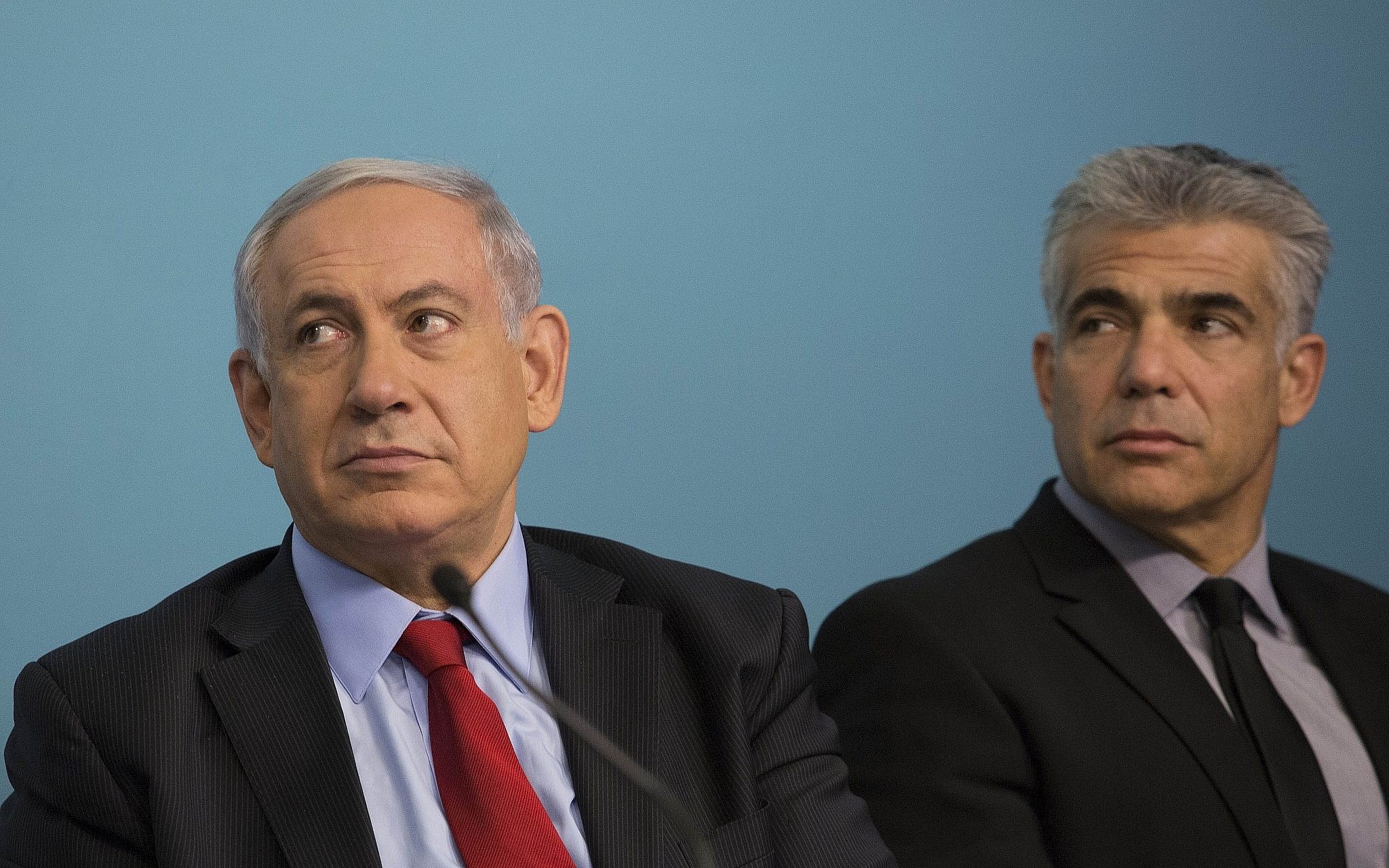After 12 straight years in power Israeli Prime Minister Benjamin Netanyahu, who was also prime minister for an additional three years from 1996-99, appears set to lose his position after a rainbow coalition of rival political parties agreed to proposals for a new government that would see Netanyahu relegated to the opposition benches.
After a tumultuous week of negotiations led by opposition leader Yair Lapid, a formal agreement was finally reached late Wednesday night. According to reports in The Guardian, Lapid called Israeli President Reuven Rivlin to announce the proposal. “I am honoured to inform you that I have succeeded in forming a government,” Lapid said.
“I commit to you Mr President, that this government will work to serve all the citizens of Israel – including those who aren’t members of it – will respect those who oppose it, and do everything in its power to unite all parts of Israeli society.”
The new ‘unity government’ would transform the Israeli political landscape that has been dominated by Netanyahu and his right-wing Likud party for over a decade, and would end a dramatic two years of stalemate in the Knesset, with over four snap elections since 2019.
While Likud won the most number of seats in the latest elections, Netanyahu was unable to persuade enough of the opposition to secure a majority, and so Lapid’s Yesh Atid Party was given the chance to try and form a majority, as the second largest party.
Under the proposals Lapid, a secular centrist, would hand the position of Prime Minister to the far-right, religious nationalist, Naftali Bennett for two years before taking over in an historic power-sharing agreement. Bennett, who like Lapid served in ministerial positions under Netanyahu over the last decade, has become increasingly critical of his former boss over the last year. While the majority of the new governing parties are from centrist and left-wing factions in the Israeli Knesset, concern has been raised over Bennett’s past controversial comments about Palestinians and annexation of the West Bank: he has not only ruled out the possibility of a Palestinian state, but has also supported “shoot to kill” policy by the Israeli defence forces, including for minors.

However, Bennett will be part of a coalition that encompasses the establishment centre-left Labor Party and the explicitly anti-occupation Meretz Party, which undoubtedly curb his ability to pursue some of his more extreme policies. He will also be dealing with a new, more left wing President, Isaac Hertzog, who was chosen on Wednesday. Although the Presidency is a more ceremonial role, it marks a shift in the political figurehead of Israel.
Crucially, the coalition got the backing of the Arab list and its leader Mansour Abbas, who signed the deal at the eleventh hour before its deadline. This would be the first time that the parliamentary bloc of Arab Israelis would be part of an Israeli government. Although deep-rooted differences between the different groups will be hard to ignore, its leaders struck a more positive and conciliatory tone last night, saying they aimed to focus on the pandemic response and the economy, an area in which there was more consensus between them.
Lapid, Bennet and Mansour even posed and smiled for a photo during the signing, which Noa Landau, a writer for the left-wing Israeli newspaper Haaretz, captioned “History”.
History: Islamist Leader Signs on to Bennett-Lapid Government https://t.co/lxaQs3NHgr
— Noa Landau נעה לנדאו (@noa_landau) June 2, 2021
What will this mean for the region?
In reality, it is difficult to predict the immediate effects of this coalition on the wider Middle East region, let alone the longer term impacts, due to the sheer number of parties involved with such differing opinions and policies.
After the recent bombardment of Gaza by Israel and widespread race riots in Israeli cities, perhaps a change of leadership will open more dialogue between two sides whose unchanging leaders were becoming more entrenched in their views, yet with Bennett at the helm for the next two years, that doesn’t seem a likely short term development.

Egyptian and Middle Eastern media outlets have been hesitant to to fall in support of or against the possibility of a deal, highlighting the difficulty of Netanyahu, while equally treating a Bennett premiership with some caution. Netanyahu was also the leader that a number of Middle Eastern states agreed to normalise relations with over the last couple of years.
The coalition has also not cleared its final hurdle yet, as there remains a confirmation vote in the Knesset next week, and Netanyahu is not willing to concede defeat, seeing the new coalition’s razor thin 61 seat majority as open to attacks. He has desperately been trying to appeal to individual members of the right wing coalition parties to abandon the deal, labelling it a “a leftwing government” that is “dangerous to the state of Israel.”
If Netanyahu’s advances fail, he will not only face political problems and a loss of power, but he is also likely to come back into the spotlight for a slew of corruption charges for fraud, bribery and breach of trust–all of which he denies.
Even if the new government succeeds in the confirmation vote, the prospect of actual power may well cause irreconcilable differences to resurface, with some predicting that it may be a short lasting government, but an important and historic one nevertheless.







Comments (4)
[…] Legu la kompletan artikolon en la originala lingvo : English […]
[…] Source link […]